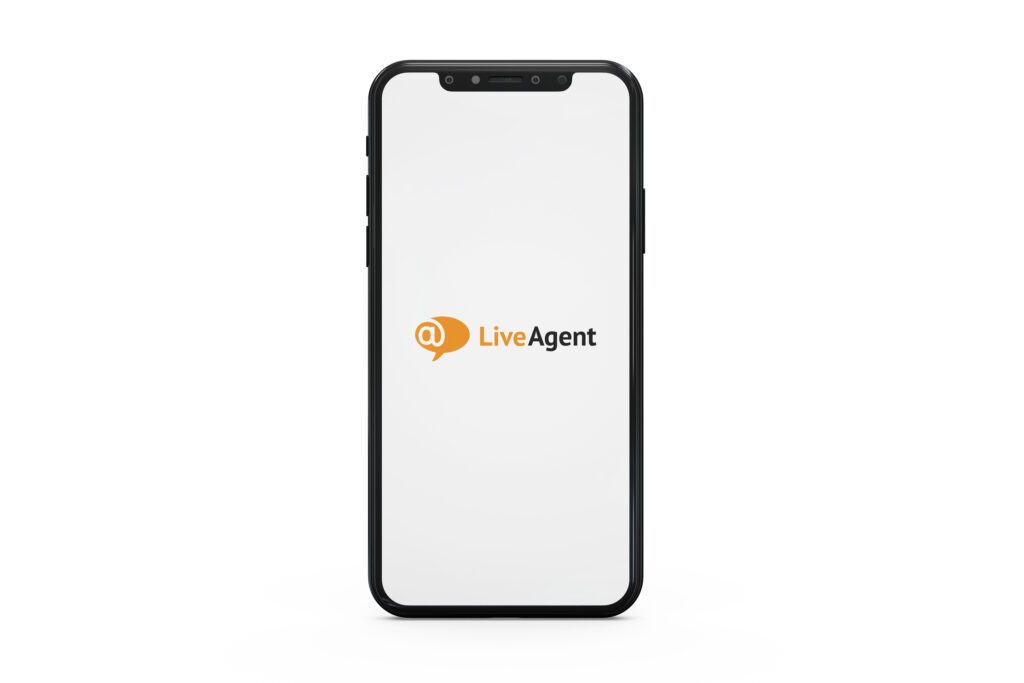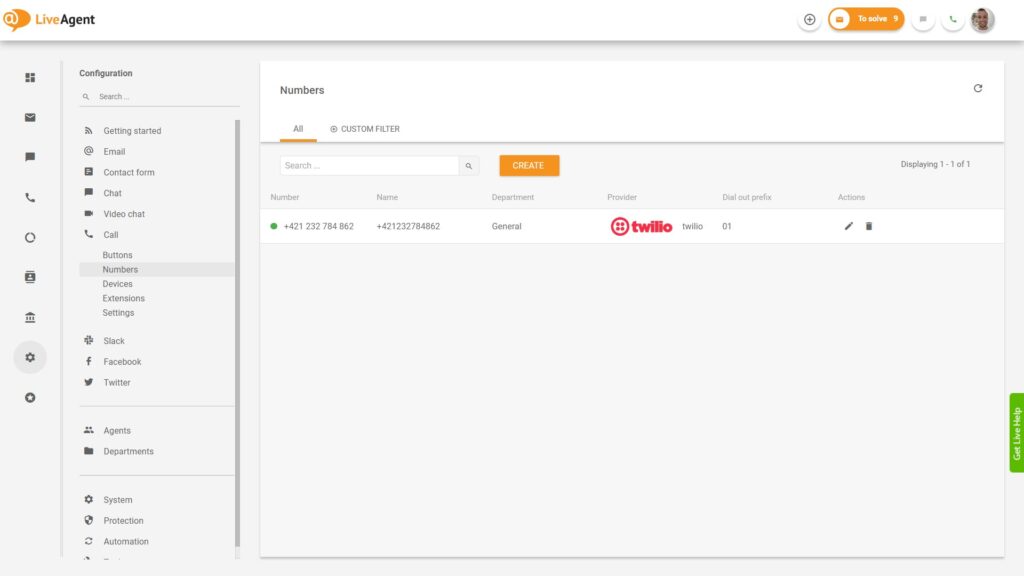Internet telephony providers know that business users want fast and cheap communications solutions. That’s why Mobile VoIP has become so popular. Keep reading to find out how mobile VoIP uses WiFi networks and wireless Internet service.
What is mobile VoIP?
Mobile VoIP (also known as mVoIP) means using a cellular phone or a mobile device to make VoIP phone calls. Without mobile VoIP, you have to be sitting at your computer to make VoIP calls.
Getting started with mobile VoIP is simple on most popular mobile devices. Download a VoIP app, set up your details, and check that you have an active Internet connection (Wi-Fi or cellular), and you can start making voice over internet protocol calls on either smartphones or tablets.

How does mobile VoIP technology work?
Mobile VoIP calling requires several technologies to make calls, which come together each time you make a call.
- VoIP service provider. A company that transmits your calls through the Internet and phone system. A VoIP service provider uses advanced technology to transmit calls through your Internet connection using data compression and other technologies.
- Mobile device. You need to have a compatible mobile device to use mobile VoIP services. Generally speaking, any modern smartphone running Android or Apple iOS will work well with mobile VoIP. In addition to phones, tablet devices can be used for mobile VoIP calls as well.
- A high-speed Internet Connection. To ensure you have a high-quality VoIP conversation, you need to have a fast connection. If your Internet connection offers a 3 to 5 Mbps speed, your calls should work fine. You can test the speed of your current Internet connection with Speedtest. You can use a Wi-Fi connection, a cellular Internet connection, or a wired Internet connection.
- Mobile VoIP software. Download the app recommended by your VoIP service provider to make calls. You will use this app for outbound and inbound VoIP calling.

Start making calls as mobile VoIP users. You choose how and when to use your mobile VoIP software to stay connected with friends, coworkers, and family.
All of these technologies come together each time you make a call.
What are the features of mobile VoIP?
The specific features of mobile VoIP vary depending on the provider. There are many VoIP service providers on the market, so you can expect a wide variety of robust features.
- Outbound VoIP Calling. Any mobile VoIP service lets you enter a phone number and call someone. Some plans might give you unlimited calling for a low monthly fee while other companies provide a low cost-per-minute charge.
- Inbound VoIP Calling. Your mobile VoIP service lets you receive phone calls from landlines, mobile phones, international calls, and calls from other VoIP brands.
- Calling via Wi-Fi hotspots. Many mobile devices can connect to Wi-Fi hotspots. That’s helpful because using Wi-Fi lets you save on expenses for mobile phone services because you do not have to use your cellular network. When you make calls using Wi-Fi, smartphone users can avoid using their mobile phone plan, which might not have the cheapest rates.
In addition to the essential services mentioned above, high-quality mobile VoIP providers sometimes offer additional services like voicemail, call forwarding, and conference calls. Some VoIP providers also provide unlimited long-distance services so that you can call anybody in the world at a low price. On top of that, you can also set up the call masking feature for mobile VoIP. This way you can protect your identity with a private phone number.
What are the benefits of mobile VoIP?
Using a mobile VoIP service, as opposed to a traditional landline phone, can help your business save money. Many VoIP service providers offer unlimited calling plans so that you can call customers and vendors without worrying about getting a hefty bill.
- Unlimited calls. Choosing a mobile VoIP service provider with an unlimited calling plan is often a good deal. Rather than constantly hunting for the cheapest rates, you can pay a single monthly fee and make all of the calls you need.
- Finding the cheapest rates. Firstly, map up the calling needs within your business. For example, if all of your customers and employees are located in the USA and Canada, paying for a worldwide unlimited calling plan would not make sense. Instead, look for a mobile VoIP app provider that offers unlimited calling to the countries you call.
- Speed of setting up new users. While the prospect of cheap calls is attractive, it is not the only reason to use mobile VoIP. Generally speaking, mobile VoIP is fast to set up, so new hires can get a business phone service fast. Instead of waiting for a new mobile handset to arrive, tell them to download your company users’ mobile VoIP apps. Minutes later, they will be ready to start making and receiving cheap calls using their new calling app without paying additional mobile phone costs.
- Support for Mobile VoIP for Business Travel. Some of your employees might need to travel for work. In that case, they need a phone service that keeps up with their specific requirements. A mobile VoIP phone service is the perfect fit for employees who travel or want the option to work from home.
What are the mobile VoIP apps?
There are many different mobile VoIP providers on the market today. To help you make the right choice, we’ll give you some tips on how to determine the best VoIP apps for you and your business.
- Android and iOS Support. Companies like LiveAgent have created an app for Android and iOS so that your employees can use whichever device they prefer.
- Business Focus (i.e., Mobile VoIP for Business). Many mobile VoIP providers are focused on serving the general public rather than business users. That’s why we recommend looking for mobile VoIP providers that focus on supporting business users. A consumer might tolerate occasional technical glitches or low audio quality, but those problems may be intolerable in a business environment.
- Reviews. If you have multiple mobile VoIP applications on your shortlist, choose the provider with the best reviews from industry publications like PC Mag.
Set up your call center anywhere
LiveAgent offers call center and plenty of other features that can come in handy with customer communication. Curious about all the opportunities?
Frequently Asked Questions
What is a mobile VoIP?
Mobile VoIP (also known as mVoIP) means using a cellular phone or a mobile device to make phone calls. Without mobile VoIP, you have to be sitting at your computer to make VoIP calls.
How does mobile VoIP work?
Mobile VoIP technology involves a few different technologies and services working together including an Internet service provider, a VoIP service provider, and a mobile device.
What are the features of mobile VoIP?
The specific features of mobile VoIP vary depending on the provider. At a minimum, mobile VoIP includes the ability to make outbound calls and receive phone calls.
What are the benefits of mobile VoIP?
There are several benefits of using mobile VoIP. Smartphone users can use their existing phone and simply download a VoIP app. In addition, using a mobile VoIP service can help your business save money compared to using a traditional landline phone.
What are mobile VoIP apps?
There are many different mobile VoIP apps on the market. Before you choose one, make sure it is compatible with Android and Apple devices.
![Expert badge]() Expert’s note
Expert’s note
Mobile VoIP is revolutionizing customer service by providing cost-effective and reliable support to businesses of all sizes. Stay connected and save money with this innovative technology.

Free VoIP software allows users to make voice and video calls at no charge. It's ideal for businesses and individuals looking for cost-effective communication solutions. LiveAgent supports VoIP integrations, making it a reliable call center software for handling various types of calls. However, free VoIP services may come with limitations such as limited calling plans, user restrictions, slower connections, and office location requirements. It's important to choose a provider based on specific requirements, budget, and features.

 Български
Български  Čeština
Čeština  Dansk
Dansk  Deutsch
Deutsch  Eesti
Eesti  Español
Español  Français
Français  Ελληνικα
Ελληνικα  Hrvatski
Hrvatski  Italiano
Italiano  Latviešu
Latviešu  Lietuviškai
Lietuviškai  Magyar
Magyar  Nederlands
Nederlands  Norsk bokmål
Norsk bokmål  Polski
Polski  Română
Română  Русский
Русский  Slovenčina
Slovenčina  Slovenščina
Slovenščina  简体中文
简体中文  Tagalog
Tagalog  Tiếng Việt
Tiếng Việt  العربية
العربية  Português
Português 
 Expert’s note
Expert’s note


